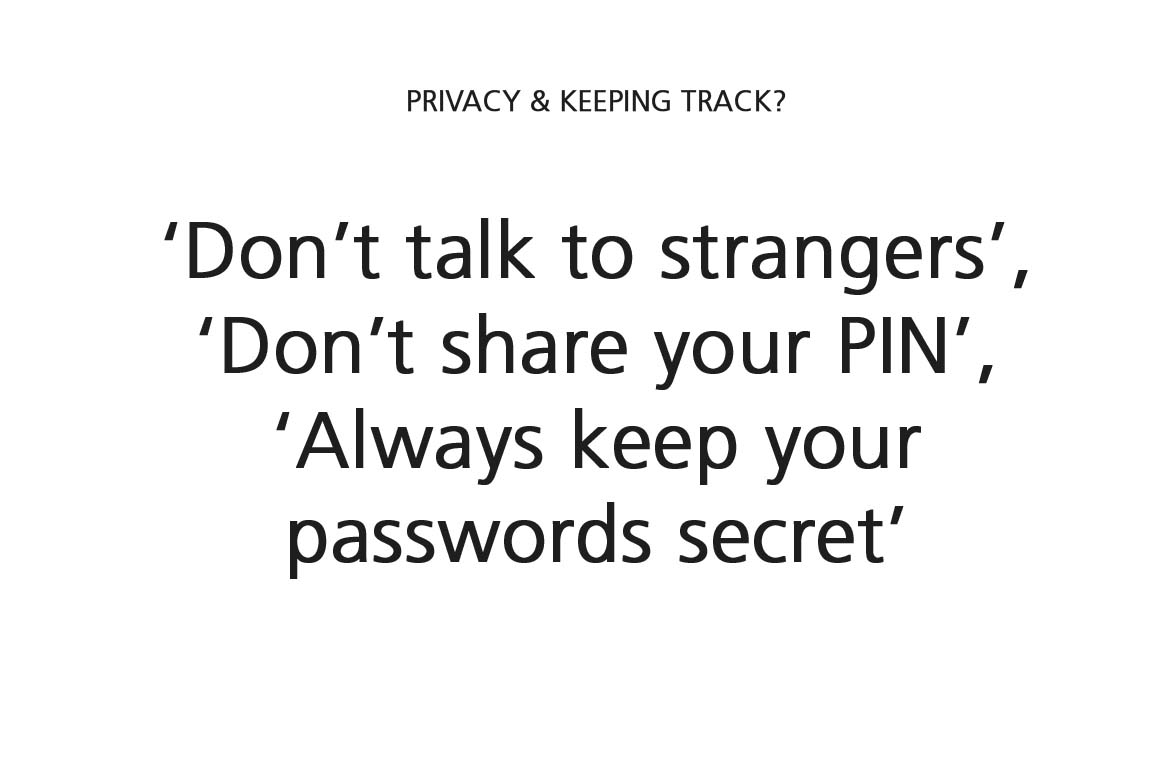Privacy & Keeping track?
‘Don’t talk to strangers’, ‘Don’t share your PIN’, ‘Always keep your passwords secret’
Regardless of who we are and what we do, protecting our personal information is often at the forefront of our minds.
However, as we continue to invite the latest advancements of technology into our lives, we perhaps forget that what may make our lives easier may also compromise our privacy. Facebook, Twitter, Instagram and many other social media tools can ‘leak’ our private lives to greater and lesser degrees. This could be your holiday photos, your personal thoughts on current affairs, or even posting videos of your ALS Ice Bucket Challenge. We can communicate widely with the simple click of a button.
We want an easier life and to take advantage of the available technology and, at the same time, to vigilantly maintain our privacy. However, how many of your Facebook friends or Twitter followers do you actually know or have even met? Is your account properly protected from anyone potentially seeing your posts? Have a look. It might surprise you.
With our willingness to ‘share’, someone can easily undertake a ‘lifestyle’ survey on you, under the banner of Open Source Intelligence (OSINT) gathering. Can we truly complain about intrusion to our privacy, when we’re not perhaps hiding it as well as we could?
What is tracking?
This leads to the debate and discussion of the privacy of ‘tracking’. This technology has been around for many years and where it was originally extremely bulky and expensive, most smart phones today come with some variation of ‘findmyphone’ already loaded, and for free.
There are many elements within our day-to-day technology use that ‘leak’ information on our whereabouts, which we may often not even be aware of. So why is ‘conscious’ tracking important and how can we retain privacy from those we wish not to know our whereabouts?
About 20 years ago, pre-smartphone, tracking required the individual to carry a separate device. Those companies that ‘imposed’ these trackers on their executives would often meet considerable resistance. Yes, the executive knew that it was for their personal safety, but it was something else they had to pack and administrate, making sure it was plugged in overnight. As a result, many of these devices would go ‘missing’ or lost, or be left in the hotel, thrown out of a window, etc. The technology then evolved to mobile phone applications. The first versions of these were as much of a problem. Furious executives having their Blackberries rinsed of battery power within only a few hours was a common complaint. The other main issue was their company being able to track them whenever they wanted. ‘No thank you’ was the frequent response. ‘Not when I’m at home, with my lover, sneaking off to the golf course’. So the companies had to introduce the ‘switch-on/switch-off’ option.
You can imagine what happened. Tracking became a ‘black or white’ option. Either the company would demand the executive had a ‘live’ tracker or they couldn’t travel. Or they couldn’t enforce a tracker at all.
With current technology, there are trackers that can remotely switch on the phone’s microphone and camera. How many executives are aware their companies can do this? So, we’re back to the privacy issue and how much we’re willing to relinquish.
There is still a debate to be had to consider what is realistic in our expectations and demands for privacy, when we’re all potentially leaking like sieves anyway?
Will Geddes
MD at ICP Group & TacticsOn Limited

